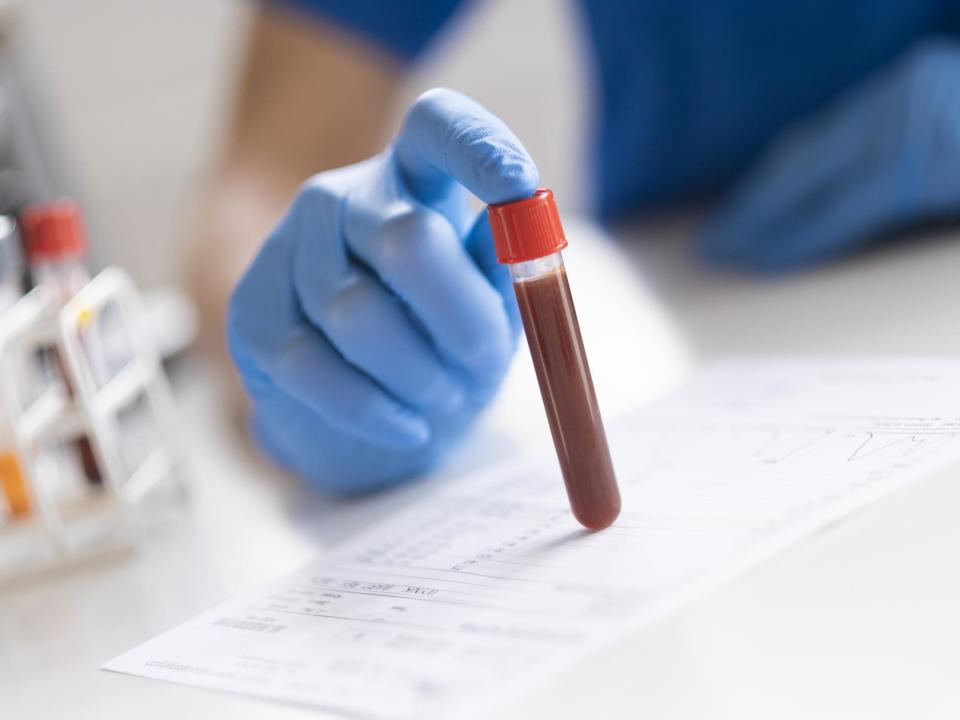Prostate cancer: Blood test could predict how well patients will respond to treatment, research suggests

A simple blood test could be used to predict how well men with prostate cancer will respond to treatment, according to new research.
This liquid biopsy could also help identify the patients who are more likely to relapse, scientists have said.
The non-invasive test – which is less painful than tissue biopsies – could lead to tailored treatment for those in the advanced stages of the prostate cancer, according to The Institute of Cancer Research, London (ICR).
It could also allow doctors to stop drugs for certain patients that are unlikely to work as soon as possible, they added.
A team of researchers from ICR and The Royal Marsden NHS Foundation Trust analysed over 1,000 blood samples from patients with prostate cancer.
They said the tests can detect traces of cancer in the bloodstream and could help track how the disease evolves and responds to treatment.
Professor Paul Workman, ICR’s chief executive, said the “simple blood tests” can ”help us anticipate cancer’s next move”.
He added: “They can help doctors come up with personalised treatment plans and to stay one step ahead of the disease.”
The study focused on men who were part of a clinical trial looking at the benefit of abiraterone, a targeted drug, with or without an experimental drug, ipatasertib.
The results showed that men with high levels of tumour DNA at the start of treatment had a significantly worse outcome.
After monitoring patients with repeat blood tests, the team of researchers also found those who responded to treatment had the greatest fall in the amount of cancer DNA in their bloodstream.
Scientists also found through analysis of DNA from the blood tests that there were specific genetic changes associated with drug resistance, indicating risk of early relapse.
“Our study shows that a simple blood test could help us track how cancer evolves and responds to treatment – initially as part of clinical trials and eventually in routine care,” Professor Johann de Bono, professor of experimental cancer medicine at the ICR, said.
“These so-called liquid biopsy tests are minimally invasive, cost-effective and can be performed often and with ease.”
The consultant medical oncologist at The Royal Marsden trust added: “Tracking prostate cancer with a blood test instead of a painful surgical biopsy could significantly improve patients’ quality of life.
“Our study offers further evidence for the huge potential of liquid biopsies to help guide treatment, design personal treatment plans and improve patient outcomes.”
Prostate cancer is the most common cancer in men in the UK, with more than 47,500 men diagnosed every year, according to Prostate Cancer UK.
Additional reporting by Press Association
Read more
Prostate cancer tests: Life saving or a nuisance?
Prostate cancer now most common cancer diagnosis, new figures show
Number of men dying from prostate cancer surges to record levels

